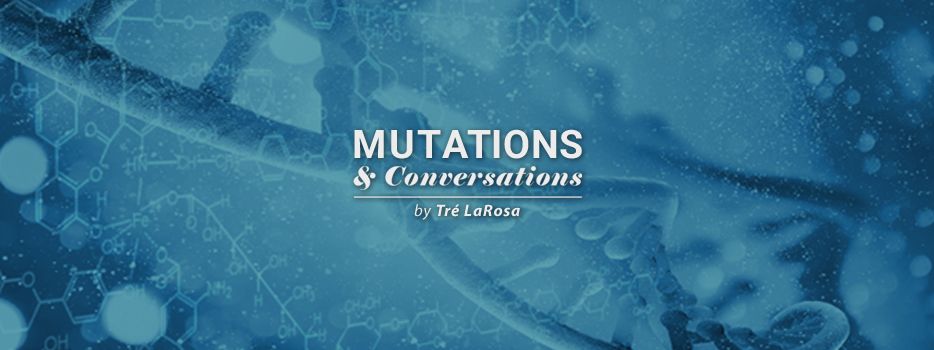Yes, I Will Get the COVID-19 Vaccine

I can’t remember when I first fell in love with science. I loved learning about it and going on field trips, but I didn’t enjoy science fairs because I missed hanging out with my friends (although I did place second at a science fair with some assistance from my dad).
In middle school, my love for science grew as I learned more about cystic fibrosis. The more I understood, the more empowered I felt to take control of my health and my life. Science — or more precisely, biochemistry — gave me an objective understanding of why my body didn’t function the same way as a healthy person’s.
More earnestly, simply understanding the biology and not finding some grandiose, fateful reason for why I had CF allowed me to get out of my self-absorption. I stopped worrying about why I had CF and started trying to figure out how I could use CF to empower me.
This empowerment became the foundation of how I approach all things in life. It’s why I’m a scientist and a writer. It’s why I strive to deeply understand concepts — not just the basics, but to a degree that I can simplify and articulate them to people with less time to research.
The true hallmark of understanding is when you can remove the jargon and explain concepts in very basic terms. As the listener gains a better understanding, more complex terms and concepts can be used. In most cases, however, you only have somebody’s attention for a short time.
This leads me to this week. I sincerely believe that both the Pfizer/BioNTech and Moderna COVID-19 vaccines are perhaps mankind’s greatest achievement. Sure, that’s a bold statement, but the vaccines encapsulate two of my favorite things: the resolve of the human spirit and science.
It’s been about 13 months since the virus was first documented in Wuhan, China, and just over nine months since the U.S. began to take a scattershot approach to containment. During this time, the COVID-19 pandemic has been marked by global political and social upheaval. The pandemic really didn’t expose anything new about how the world operates economically, politically, or scientifically. Instead, it brought nearly everything under a different lens. We were forced to confront the same issues that are always present, but in the context of the pandemic.
And yet, through it all, we as a species have created not one, but two effective vaccines in an unbelievably short time, with more in the pipeline. Never before has there been such a collaborative global human effort with a shared goal: to defeat this virus that brought the world to its knees.
Since the pandemic began, the world has felt more divided than ever. Behind the scenes, like a sort of scientific, collaborative background radiation, the scientific community has been united by this shared goal. Labs across the world repurposed themselves to focus on this new strain of coronavirus to best understand it, determine how to successfully inoculate against it, and arm doctors, epidemiologists, and lawmakers (with varying degrees of success) with the knowledge needed to stifle this inflection point of humanity.
I’ve been a scientist for about seven years, and while neither science nor scientists themselves are perfect, it’s hard for something like this to become reality. There are many, many touchpoints that require justification and safety to be effectively determined. The U.S. Food and Drug Administration found the Pfizer vaccine to be safe after some of the tens of thousands of clinical trial volunteers showed only mild side effects, which is similar to the scope of side effects of a flu vaccine. The Moderna vaccine also appears to be safe.
Scientists, a nebulae of humans with a shared goal but varied approaches, have utilized one of humanity’s other great achievements: the scientific process. The vaccines, while expedited, are not some magical or miraculous creation — they’re much more beautiful. They are the result of what happens when humans come together to achieve something.
When I get the COVID-19 vaccine, which I absolutely plan to do, I’m going to choose not to focus on the division of the last year. I’m going to pay my respects to all of the people who tragically lost their lives or who have suffered long-term effects of COVID-19, including the brave healthcare heroes who have been on the frontlines, and I’m going to focus on the beauty of the human spirit when we come together.
Follow along with my other writings at my humbly named site, www.trelarosa.com, or subscribe to my newsletter “sonder, essays” at trelarosa.substack.com.
***
Note: Cystic Fibrosis News Today is strictly a news and information website about the disease. It does not provide medical advice, diagnosis, or treatment. This content is not intended to be a substitute for professional medical advice, diagnosis, or treatment. Always seek the advice of your physician or other qualified health provider with any questions you may have regarding a medical condition. Never disregard professional medical advice or delay in seeking it because of something you have read on this website. The opinions expressed in this column are not those of Cystic Fibrosis News Today, or its parent company, Bionews, and are intended to spark discussion about issues pertaining to cystic fibrosis.








Paul Jordaans
I think it is much too early to be so euphoric about the vaccines. They have not been proven to be the best answer to this pandemic and it is highly questionable if they are.
And in general, so far, the endeavour of the human species and science to "defeat" our natural "enemies" has only disturbed the balance of nature, which is so much wiser and more complicated than we in our arrogance and stupidity will ever fathom.